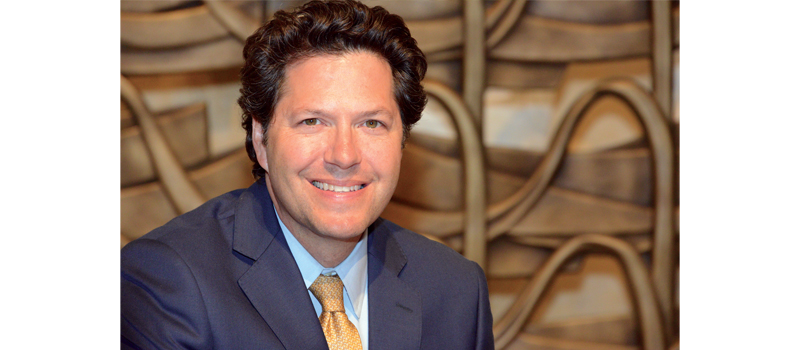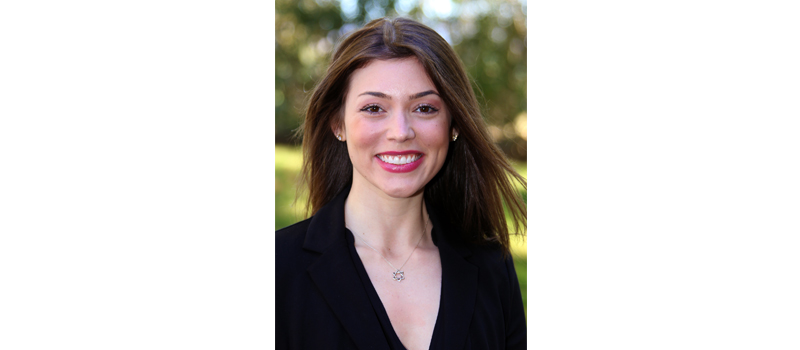It was one of those parenting moments you just have to savor. My wife had a work commitment and my daughters said, “Hey Abba, let’s go out to dinner — just the three of us!”
We thought it would be nice to go to a new place so we went to the Yelp site and searched for the best new restaurants in our neighborhood. We found a restaurant with excellent reviews. I figured we should make a reservation.
We arrived a few minutes late and I was worried they’d given away our table.
It turned out there was no need to worry: We were the only people in the entire restaurant.
“It’s the coronavirus,” the hostess said. “People are staying away.”
It’s happening all over the world.
Markets are crashing in part because of the uncertainty about how this virus will affect businesses big and small, such as restaurants, hotels, travel-related services and manufacturing.
There is reason to be concerned, to be sure. It will take time to contain the transmission and develop a vaccine.
I’m not an epidemiologist. I’m not a medical doctor although I am a doctor’s son.
I don’t have any great wisdom to share about this disease other than what we all should know already:
- Stay home when you are sick.
- Wash your hands before eating; after blowing your nose; coughing; or sneezing.
- Clean and disinfect frequently touched objects and surfaces, such as cellphones, using a regular household cleaning spray or wipe.
- Cover your cough or sneeze with a tissue. Then, throw the tissue into the trash. If you don’t have a tissue, sneeze or cough into your elbow or sleeve, not your hands.
That’s all good advice from the CDC.
But our tradition has some wisdom about how, more generally, we should cope with outbreaks like these.
It’s found in a text from the Talmud, almost 2,000 years old. It describes a disease the ancients called Ra’atan. It was thought to be contagious — and dangerous.
The Talmud begins by asking what the symptoms of the disease are. The rabbis answer:
His eyes tear, his nostrils run, spittle flows from his mouth and flies swarm about him.
They then suggest various treatments that include using herbs and plants to make medicines that are to be combined with surgery.
But then the text shares something that is most interesting. It tells us how some of the sages responded to the contagion, how they told others to treat those who were infected.
Our tradition has some wisdom about how, more generally, we should cope with outbreaks like these. It’s found in a text from the Talmud, almost 2,000 years old.
Rabbi Yohanan issued the announcement: “Beware of the flies of the man afflicted with Ra’atan.” Rabbi Ze’eira never sat downwind of the sufferer. Rabbi Eleazar never entered his tent. Rabbi Ammi and Rabbi Assi never ate any of the eggs coming from the alley in which he lived.
Rabbi Joshua, the son of Levi, however, hugged these [sufferers] and engaged in Torah [with them] …
We want to keep ourselves safe. We don’t want to become infected with a potentially deadly disease. That’s natural.
We want to stay away from people who might unwittingly and unintentionally transmit the disease to us. That’s understandable.
The rabbis who knew a great deal about the world but were largely ignorant of the biology and chemistry of these diseases, warn people to keep their distance. Not bad advice.
But I’m deeply moved by the teaching of Rabbi Yehoshua ben Levi. He lived in the third century C.E. in the land of Israel. He came from Lydda, near where Ben Gurion Airport is today.
He believed that Torah was an elixir, a cure-all that would protect one from harm and bring healing to all who engaged in it. So when he heard that someone had this disease, he went to them and embraced them and taught them Torah.
Think about this for a moment: Ra’atan was a disease that was thought to be highly contagious and dangerous.
And yet Rabbi Yehoshua ben Levi went to those who were suffering from it. He held them — these people who have been ostracized. These people who had been — because of the fears that others had about the disease — largely abandoned by the community. He showed them kindness and then he studied Torah with them.
The great medieval commentator of the Torah, Rashi, wrote that Rabbi Yehoshua ben Levi taught Torah to protect himself — it’s a type of vaccine that prevented transmission of the disease.
But it’s also possible that Rabbi Yehoshua ben Levi taught them Torah as a way of curing them. He believed that Torah study is good for the mind, good for the soul, and good for the body.
One last thought: I want to connect this all to last week’s Torah portion, parashat Terumah.
It describes the gifts the Israelites brought to build the mikdash — the portable sanctuary that our ancestors carried with them in the wilderness. According to our tradition, God told Moses to tell the people:
“And let them make Me a sanctuary that I may dwell among them.”
The mikdash (portable sanctuary), the root of the word is “kodesh” (holiness).
So here’s the lesson:
When people are in need of healing and we try to bring them comfort, we try to restore them to health — that’s a holy act.
When people are suffering and we try to ease their pain — that’s a holy act.
When we try to keep others and ourselves safe so that diseases like Ra’atan or the common flu or COVID-19 (what the current strain of coronavirus has been named) don’t spread — that’s a holy act, too.
So wash your hands. Get plenty of sleep. Take care of yourselves.
And take care of one another, too. Find ways, safely, to embrace those who are in need of healing. Bring them your love, your heart, your Torah.
The mikdash our ancestors built in the wilderness is no more. But the holiness embedded in those efforts is all around.
Now especially, during this time of such great concern and fear, let us make sanctuaries for one another. Let us be sanctuaries for one another.


